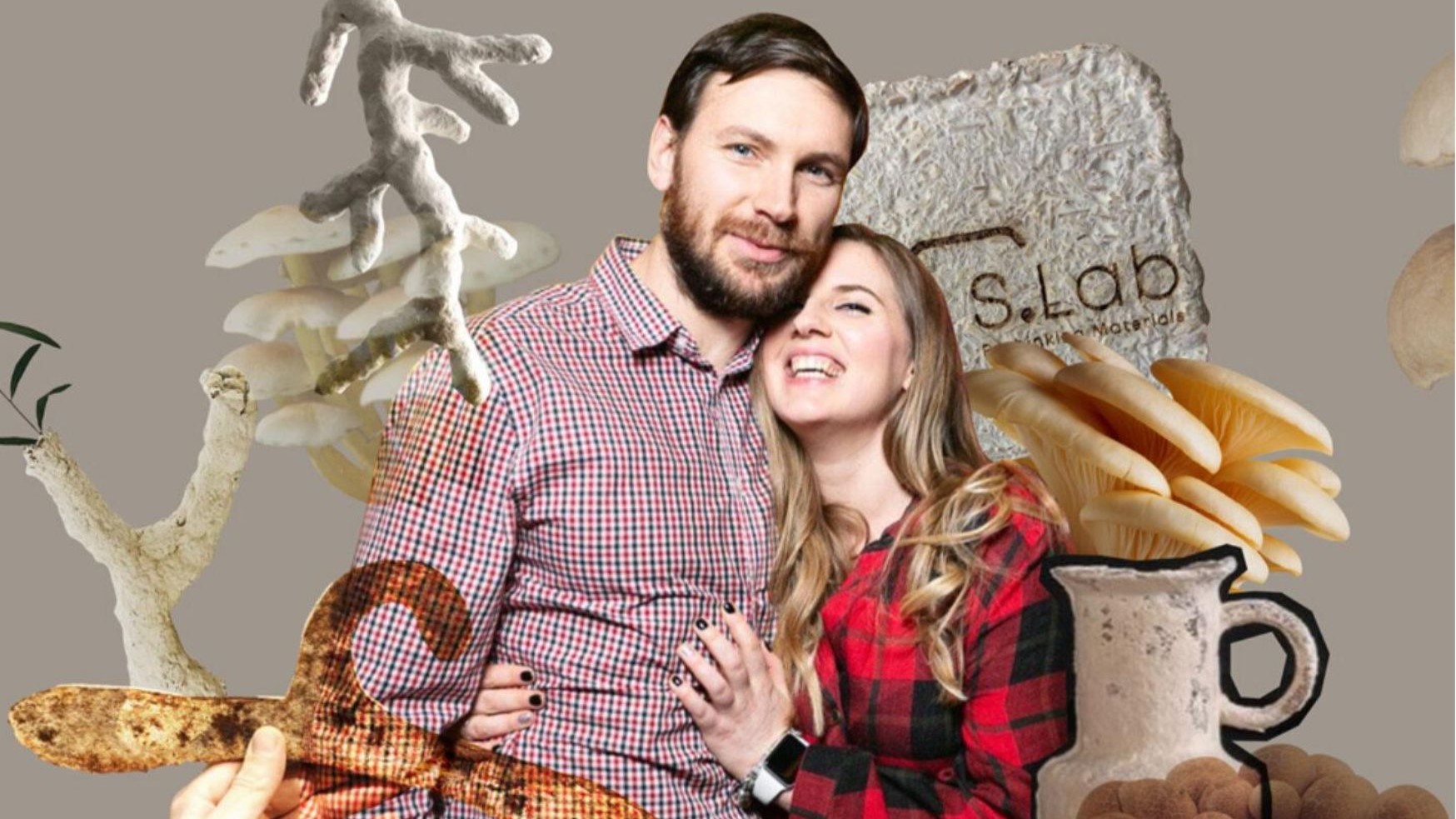Co-founders Yuliia Bialetska and Yevhen Tomilin were inspired during a 2017 trip to Bali, where they encountered mountains of plastic litter polluting pristine beaches, the couple told in an interview with Ekonomichna Pravda. This led them to research eco-friendly packaging materials as an alternative.
“We started watching videos, reading research, and studying what eco-friendly materials currently exist on the market. We wanted to create something with the same functionality as plastic, foam, or cardboard – but completely safe for the environment,” Bialetska explained.
Upon returning to Ukraine, the couple dove into researching potential solutions. Both had IT backgrounds, while Byaletska brought supplemental biotech knowledge.
“‘Every year, more than 2 million tons of Styrofoam packaging are produced worldwide, leading to 12 million tons of CO2 emissions. Additionally, Styrofoam is non-recyclable and takes 300 years to decompose. 30% of the world’s landfills are covered with Styrofoam! Thus, the transition to eco-friendly packaging has a positive impact on climate change,’ the CEO of S.Lab told AIN.Bussines.”
After several years S.Lab finally launched in Kyiv. They experimented with producing dishes, decor, and building materials before ultimately choosing to specialize in packaging materials. The packaging decomposes within a month after disposal in the soil. It provides insulation and can be moulded into boxes, trays, inserts, and wraps for various products.
“When we made the first samples, feedback was 90% positive. But there were doubts that the products don’t look very aesthetic. This isn’t the plastic people are used to,” Bialetska said.
The couple invested $40-50,000 personal savings into their business. Early sales revenue was reinvested back into the venture and additional capital came from small innovation grants.
Bialetska noted that raw materials like waste hemp stalks and mycelium are relatively inexpensive. A key challenge facing S.Lab was scaling up manufacturing capacity from hundreds to thousands of units monthly to meet client demand and work with large corporations. But machinery to automate processes requires major capital investment. The startup’s small-scale operation couldn’t initially satisfy some orders for tens of thousands of packaging units.
The startup has acquired local food and hospitality clients. Altruist, a Kyiv restaurant and shop, ordered decorative items, gift set packaging and sustainability-minded renovations. Beauty, fashion, electronics, and decoration companies also called for custom packaging orders. But Russia’s full-scale invasion halted many Ukrainian businesses.
“After 24 February, our entire team left Ukraine. We had to leave the Kyiv laboratory, although we were able to take some of the equipment with us. We moved to Spain, as it has one of the largest industrial hemp markets in Europe, and it is easy to find suppliers here,” the co-founder of S.Lab said.
By April 2022, the team began researching opportunities in Scandinavia, later expanding to France, Spain, Portugal, Germany, and Switzerland.
S.Lab operates in several market niches. Cosmetics and personal care brands appreciate the packaging’s insulating properties during shipping. Luxury fashion designers and jewelers are moving to replace plastics with S.Lab’s sleek mushroom packaging. The company is courting food and pharmaceutical players, though certification is still needed for edibles.
At this time, the company is focusing its investments on establishing a production line, a strategic priority given the influx of pre-orders. The founders anticipate operationalizing the production line by the year’s end.
Photo from: S.Lab/Instagram




